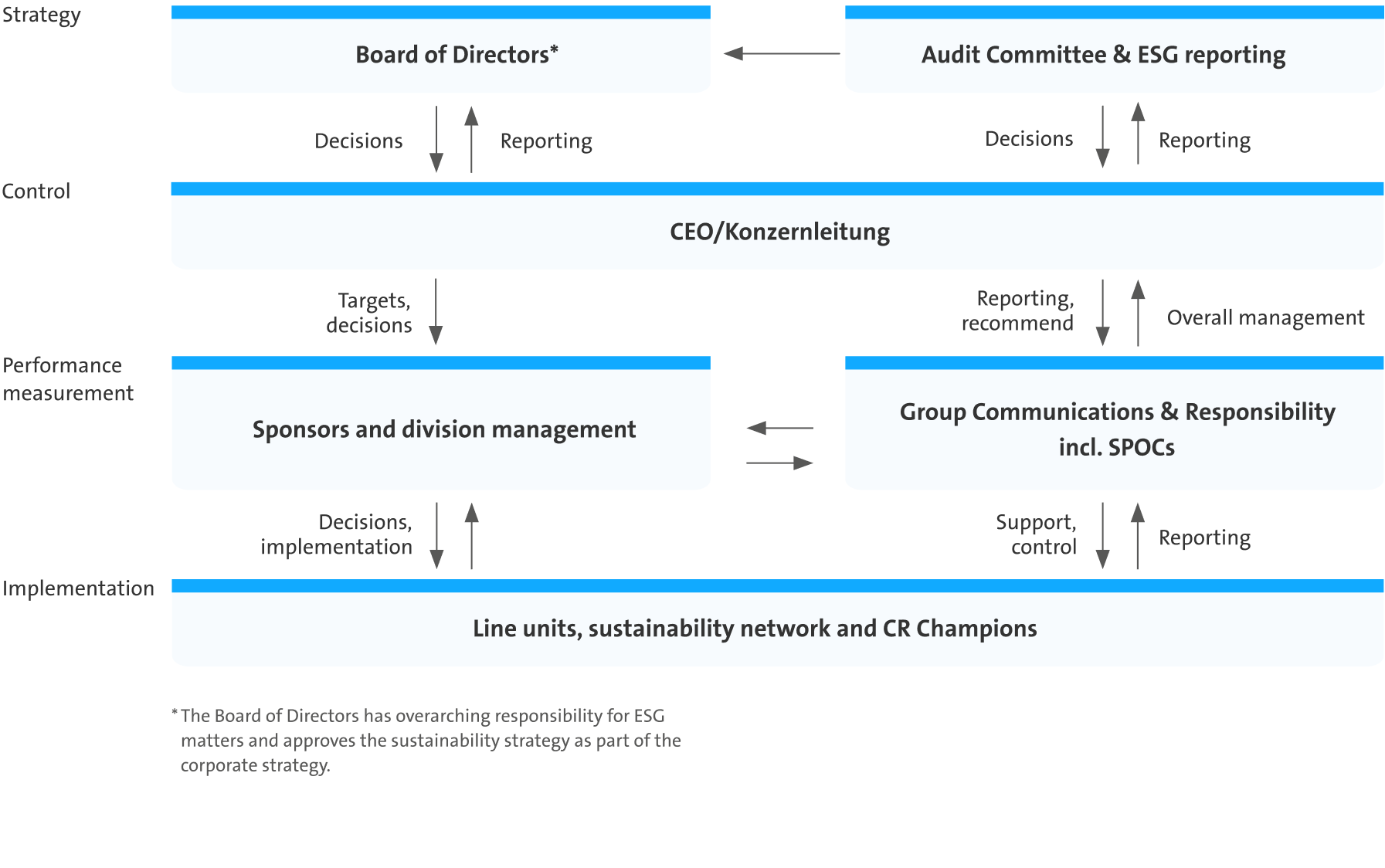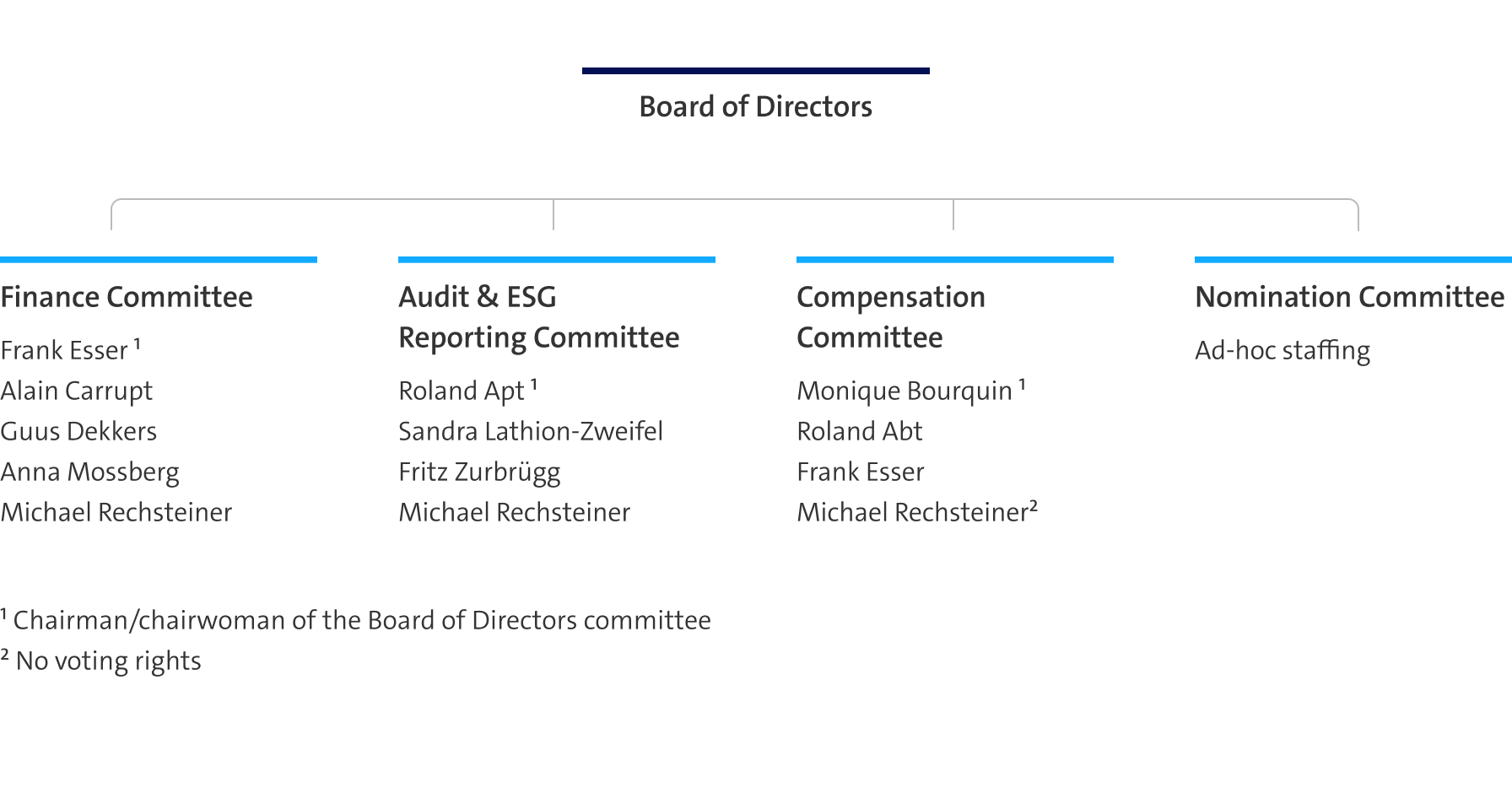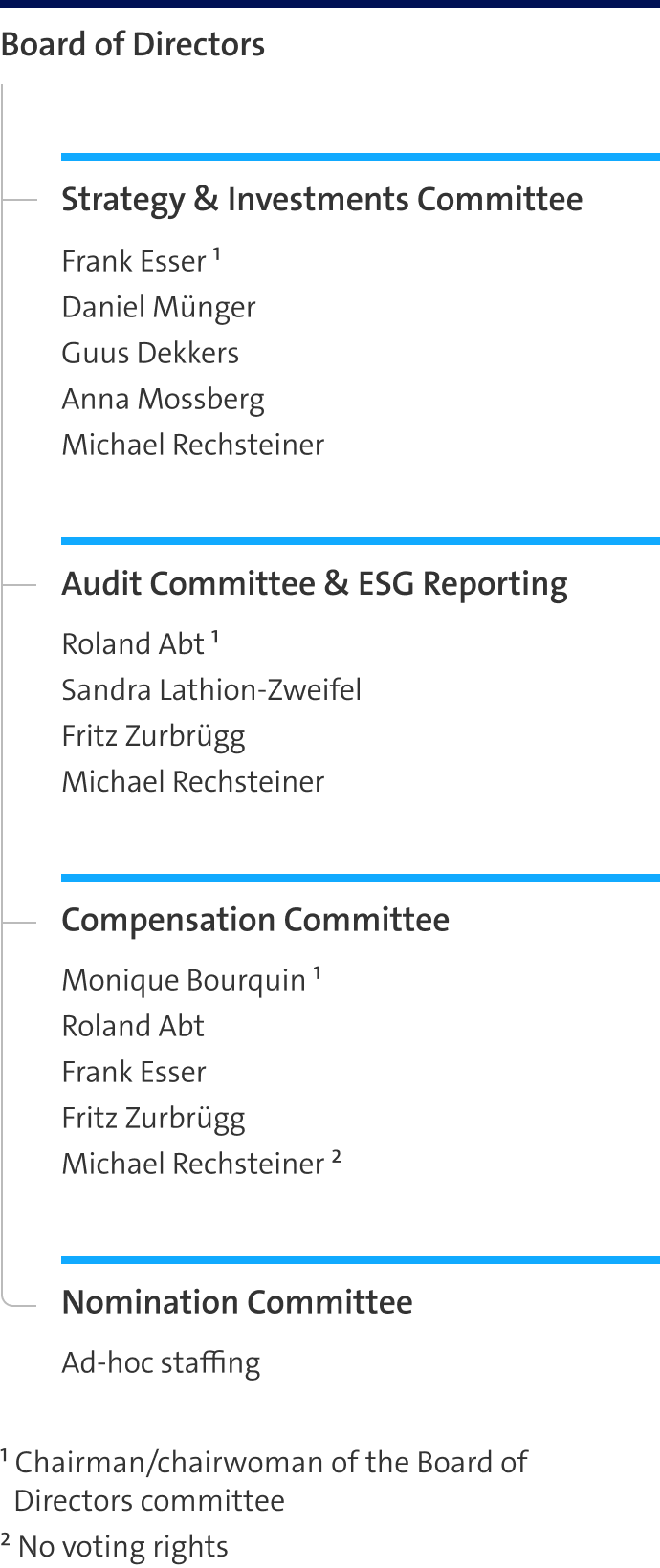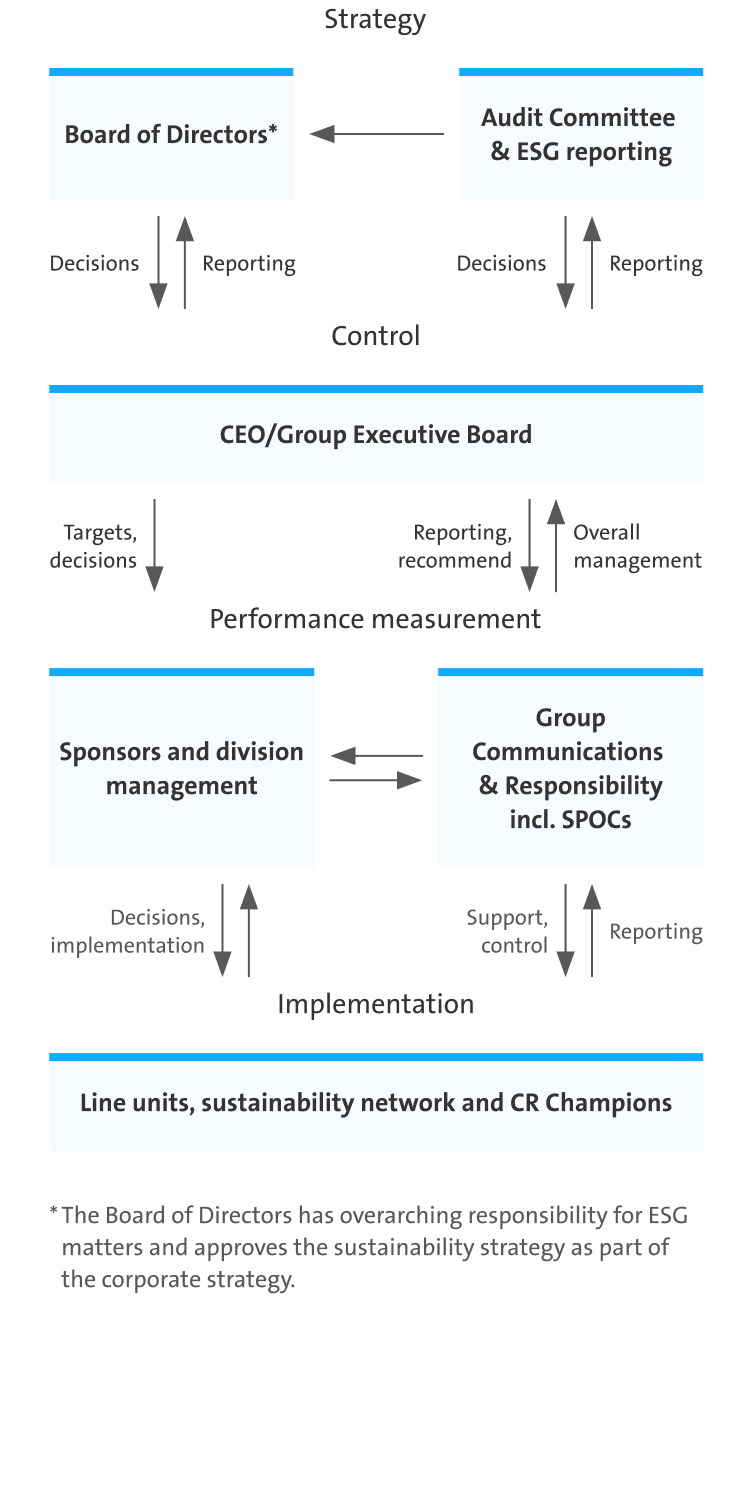Corporate responsibility governance
The revised corporate responsibility (CR) governance entered into force on 1 January 2022. Under these Organisational Rules, the Board of Directors of Swisscom Ltd approves the ESG (Environment, Social and Governance) strategy and defines the key non-financial concerns for the Group (including the definition of performance indicators). It manages the implementation of the measures taken by Swisscom concerning the key non-financial issues identified. Furthermore, it monitors the relevant risks associated with the key non-financial issues.
During the reporting year, this new governance structure was discussed with all line units and embedded within the relevant processes.
Strategic goals of the Federal Council
Each year, the Federal Council defines, based on the Telecommunications Act (TCA), the goals that the Confederation, as the majority shareholder of Swisscom, wishes to achieve by the end of a four-year period. In the current period and until 2025, the Confederation expects us to pursue a sustainable corporate strategy that respects ethical principles insofar as it is economically possible for us to do so. In this respect, the reduction of greenhouse gas emissions plays a particularly important role. Moreover, where it makes sense from a business perspective, the strategy must accommodate the requirements of different regions of the country.
Incorporation in the Group’s strategy
In its business activities, Swisscom Ltd is guided by the principle of sustainable value creation, as enshrined in the Articles of Incorporation. The Board of Directors is thus committed to pursuing a Group strategy geared towards sustainability.

Organisation and responsibility
Board of Directors
At the CEO’s proposal, the Board of Directors approves the sustainability strategy incorporated within the corporate strategy, defines the key ESG issues and goals for Swisscom, and subsequently monitors the associated risks. Where necessary, it is also responsible for the policy concerning the supply chain for conflict minerals and for products and services where child labour is suspected. It also decides whether to use national or international rules for the ESG report and approves the corresponding external report.
The Board of Directors approves the revision of the sustainability strategy. It is informed in writing of the progress of the implementation of the sustainability strategy as part of the quarterly report, and orally, as part of the half-year report.


The Board of Directors conducts a thorough examination of important issues through its three standing committees, Finance, Audit & ESG Reporting and Remuneration, and through the ad hoc Nomination Committee. The Board of Directors has delegated certain sustainability issues to the Audit & ESG Reporting Committee.
